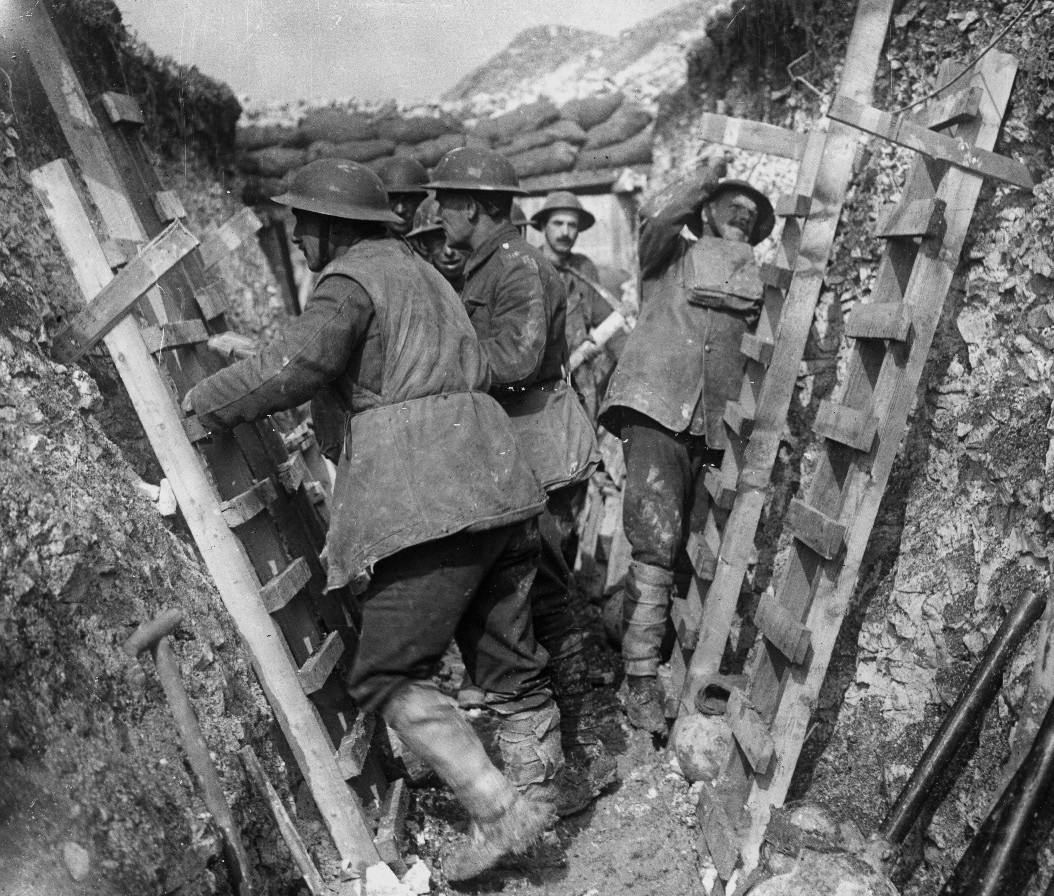
The trenches which were all breastworks like this [Figure 1] were in very good repair but there was always something to be done and generally we managed about 4 hours‘ work a day on them. At first some of the men slept at night whilst others did sentry duty and patrols along the duckboards but later on sleeping at night was entirely given up. It also soon became a point of honour that the trench officer should only enter his dugout to write reports when on duty — otherwise he stayed with the men or patrolled the sector with his trench NCO and his batman as messenger.
As the men had had very few vegetables since they came out beyond the dried vegetables which were put in their stew we arranged with Cassidy — our cook — to try and get roasting meat for Sunday and I made each man collect his mess tin full of young nettles. The meat — legs of mutton — came up to the dump all right but some other company got there first and collared the lot leaving us only the ordinary stewing stuff. The nettles however were a great success and later on when we were again at Command Post we repeated the programme — this time successfully. I rarely heard any complaints about the food except when the bread was badly knocked about but the monotony of it was very trying and it was difficult to provide any change as we were never long enough in any one place to build ovens and arrange supplies to fit a change of menu.
Your organisation does not have access to this article.
Sign up today to give your students the edge they need to achieve their best grades with subject expertise
Subscribe




